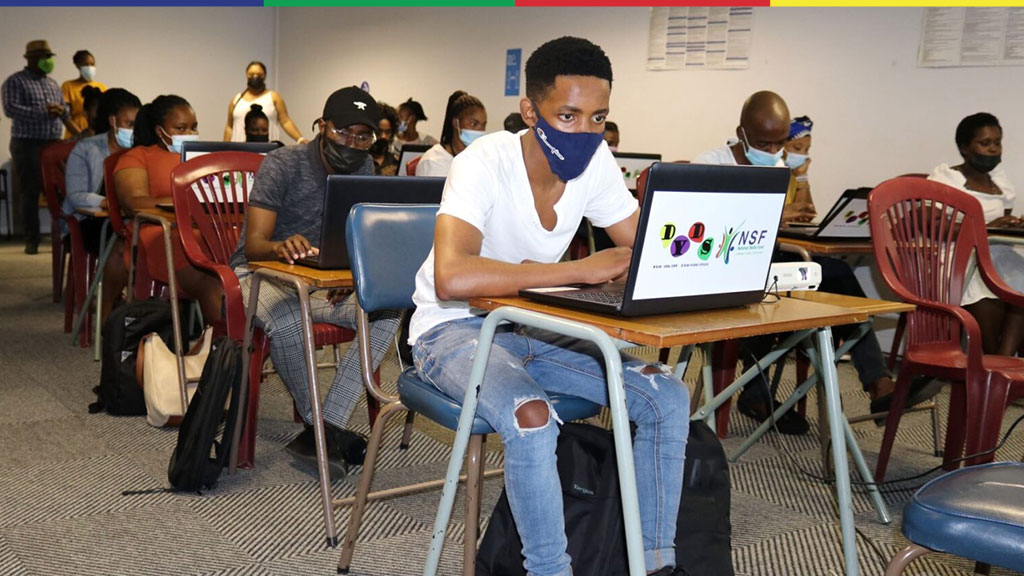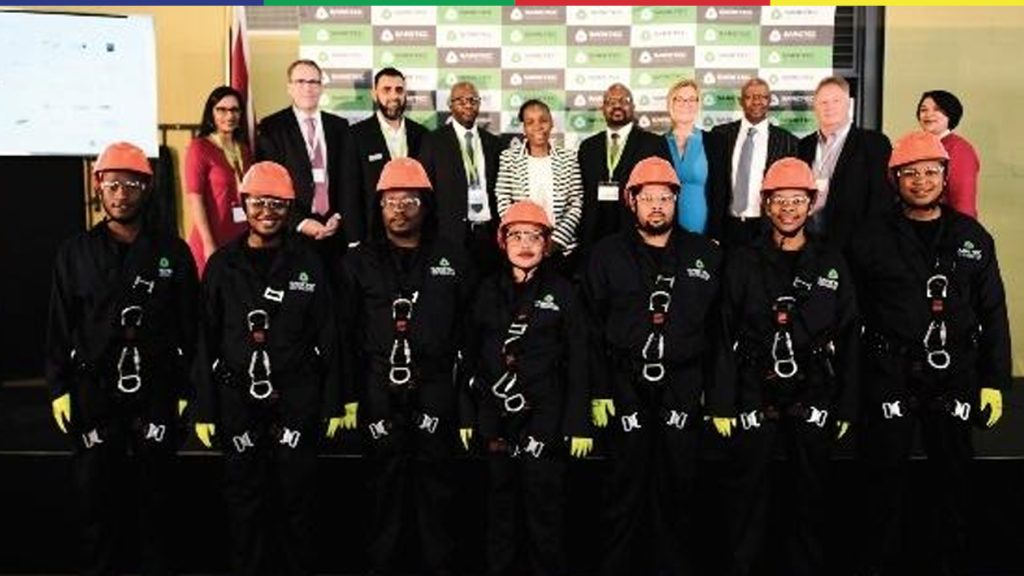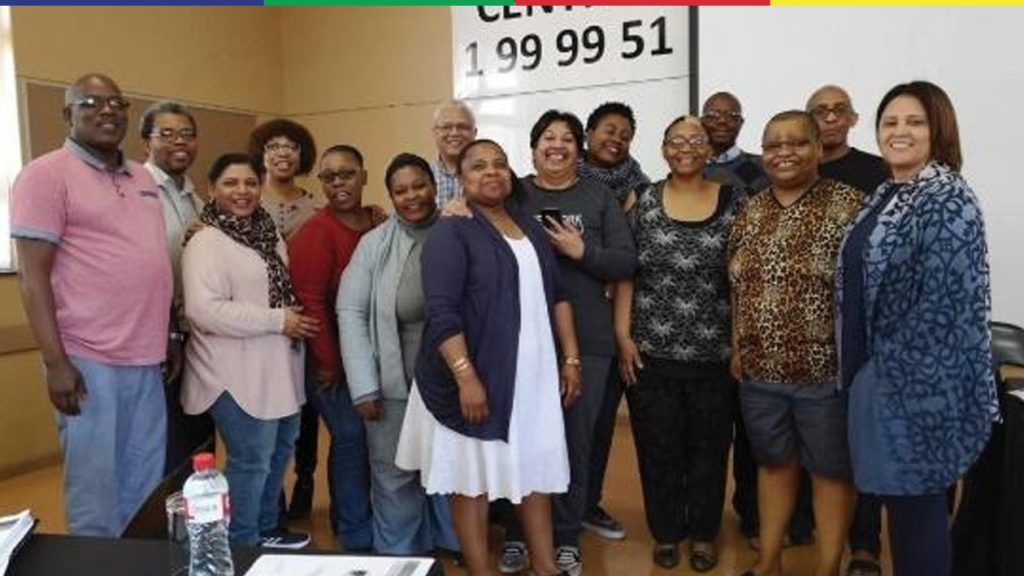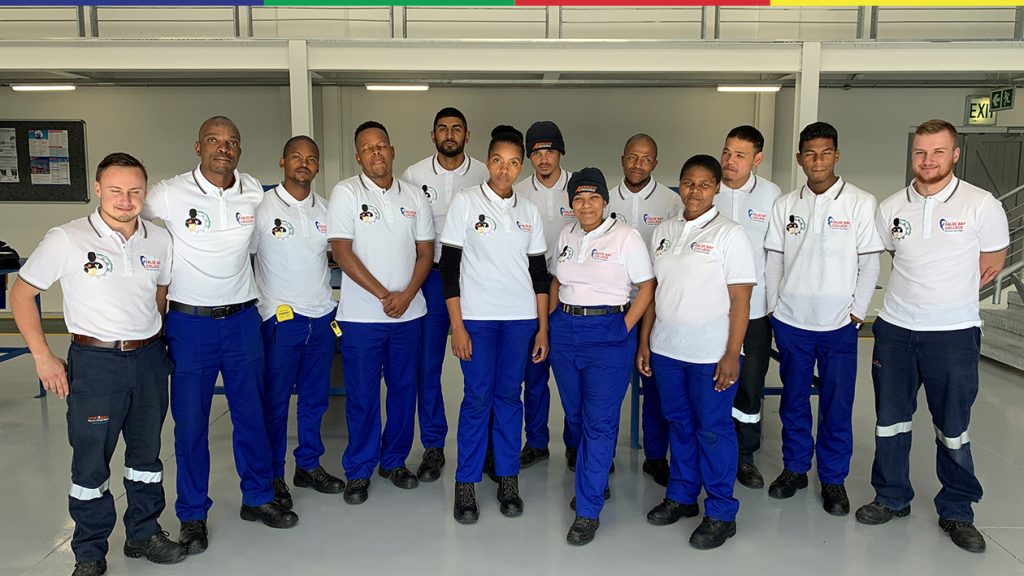Unemployed technical vocational education and training (TVET) college engineering students were given a new lease on life with the National Skills Fund’s (NSF’s) funding approval of R7 million towards the Shipping and Transport College Southern Africa (STC-SA). The NSF funding was approved for recruiting and supporting unemployed TVET college engineering students to become seafarers.
As such, at the end of the review year, Charl Sables, Daniel Chippendale and Thembele Fufu were among the cadets who were in advanced stages on their onboard training exposure with various shipping companies. The students are beneficiaries of the NSF-funded cadet programme, which was implemented by STC-SA from November 2016 to July 2019.
Sables (25) an N5 mechanical engineering student from Northlink TVET College has been drawn to the ocean from a tender age.
“All my recreational activities consisted of being in the ocean from yacht racing, taking part in dragon boats racing and volunteering at the National Sea Rescue Institute”.
“Being part of the NSF project developed me further in the maritime arena. After being placed at African Maritime Solutions and STC-SA, I am now able to work at sea and make this my new career”, Sables said.
Being on board the salvage tug SA Amandla for his work placement exposure was a notable highlight.
“It was a really interesting experience to see how powerful a tug is and to see vessels being rescued and being kept under tow after being in distress off our coastline. Because of the vessel’s age, a lot of maintenance takes place at sea and alongside in the port. Most of her engine parts cannot be found over the counter and, therefore, the designing and manufacturing of some of these parts takes place on board. A lot of fitting and machining including welding and plant operations is being done on board. Up till today, I’m still learning”.
In five to 10 years, Sables sees himself obtaining his qualification as an engineering officer of the watch, but his ultimate goal is to become a chief engineer.
For Chippendale (28), if it was not for the presentation given by Patrick Kleinbooi at Boland TVET College about the NSF-funded maritime training and development programme to be offered through STC-SA, his career would not have been possible.
Chippendale, an N3 Electrical Engineering student, is now enjoying the flexibility of his workdays, which allow him the opportunity to skipper luxury vessels for high-end clients.
In October 2017, Chippendale was placed at Boating World, a prestigious boating broker that specialises in exporting and importing luxury motor yachts, cruising boats and fishing boats.
He recently returned from his second trip to Angola where he was involved in the delivery and installation of the first M1500 AirBerth in that country. “It was a challenging build, as the assembly took place in an old abandoned boat yard on the edge of the desert where the ocean meets the desert”.
Chippendale sees himself obtaining a qualification as a captain of a super yacht.
He is grateful for the opportunity that Boating World offered him to further this career after completing training at STC-SA. The company has also supported him in obtaining his Category B over 9m skipper licence and enrolling for a Seakeeper gyro stabilizers training course.
Fufu (25) is an N6 Mechanical Engineering student also from Northlink TVET College.
Having a total power failure on board remains one of his most wonderful experiences at sea.
“Being part of the team that had to find the source of the problem and come up with a solution before returning to shore was quite an experience. The funding from the NSF for the STC-SA training, including the work placement at Servest Marine, has changed my life significantly and for the better. The funding and training gave me a home and now I can provide for my family and my son”, he said.
In the coming years, he sees himself obtaining his qualification and sailing on board bigger container vessels as a Chief Engineer.
This article was published in the NSF 2018/19 Annual Report




